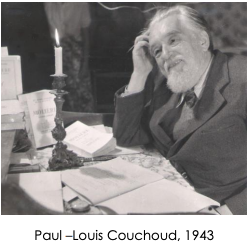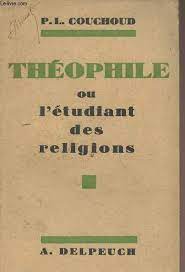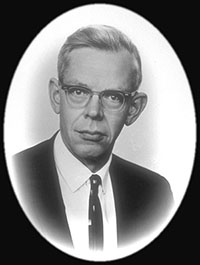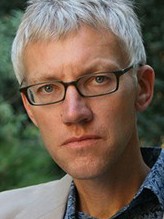Critique of the Gospel History of the Synoptics
by Bruno Bauer
Volume 3
—o0o—
307
§ 91
Respite.
We do not need to make or seek the transition to dogmatic criticism. Although the historical criticism that we have exercised above has never used so-called dogmatic arguments, such as that this or that miracle is impossible, in its result it is already the criticism of dogma. If we were to turn from it to the criticism of church dogma or the dogma of the New Testament letters, we would not be entering a new area, but would be considering the dogma that we have examined in the evangelical version in another stage of its development. The Christian dogma of the Redeemer is in itself both history – the history of his heavenly origin, his suffering, and his resurrection – and this history has been depicted in the Gospels as a real, empirical sequence of events. However, we have shown that it is only a dogma, only an ideal product of the Christian consciousness, so we have criticized the dogma at the point where it is most firmly rooted in reality and most inaccessible to doubt.
The idea of the Messiah, and specifically the idea that this is the Messiah, gave the Christian community its origin, or rather, both the formation of the community and the emergence of that idea are one and the same and coincide in terms of the matter and the time; but that idea was only the notion, i.e., the first vital impulse of the nascent community, the religious expression of an experience that the general consciousness of the world made and that expressed itself in the circle of religious concepts, presenting its content, its inner self, as a foreign person, as indeed the religious consciousness is a spirit that estranges itself from itself.
308
We have answered the question that our time has been so occupied with, namely whether Jesus is the historical Christ, by showing that everything that the historical Christ is, what is said about him, and what we know about him belongs to the world of imagination, specifically the Christian imagination, and therefore has nothing to do with a human being belonging to the real world. The question is thus answered, and it is eliminated for all future time.
Equally unfortunate is the ultimate fate of this question with regard to its concern with the determination of the sinlessness of the Redeemer. Just as the historical Christ dissolves into the opposite of what the imagination claims of him, namely from being a person with flesh and blood, a person who belongs to history with the power of his soul and spirit, into a phantom that mocks all laws of history, so has the imagined sinlessness of this phantom undergone the same fate. We simply refer to our critique, which at every step it took, had to become a feeling of indignation about a relationship in which one person is opposed to the general wickedness and stupidity, so that he always points to this contrast, always delights in this contrast, and without any moral connection with the world, dissolves all moral relationships in the thought of his pure self-consciousness, without reproducing them from it in any way. Nature must be blasphemed by the one, history and human relationships must be despised and ridiculed by him.
309
The fourth [gospel] has pursued all the relevant contrasts in his ruthless manner only up to the extreme pinnacle of the irony of the divine over all things human. But the contrasts themselves are already found in the synoptic Gospels and they belong necessarily to the religion which has raised itself to its ultimate abstract completion.
The result of our previous critique, that the Christian religion is the abstract religion, is the unveiling of the mystery of Christianity. The religions of antiquity had as their main powers nature, the spirit of the family, and the spirit of the people. The world domination of Rome and philosophy were the movements of a universal power that sought to rise above the limits of previous natural and national life and to become master of itself and of consciousness. For the general consciousness, this triumph of freedom and humanity, apart from the fact that Rome’s external world domination could not bring it about, could not yet be brought about in the form of free self-consciousness and pure theory, since religion was still a universal power and within it the general revolution had to take place. Within the sphere of the alienated spirit, if the liberation was to be thorough and for humanity, the previous barriers of general life had to be lifted, i.e., the alienation had to become total, embracing everything human. In the religions of antiquity, the essential interests conceal and veil the depth and horror of the alienation; the view of nature is enchanting, the family bond has a sweet charm, the interest of the people gives the religious spirit a fiery tension towards the powers of its worship: the chains that the human spirit wore in the service of these religions were adorned with flowers, like a sacrificial animal splendidly and festively adorned, man presented himself to his religious powers as a sacrifice, his chains themselves deceived him about the hardness of his service.
As the flowers of history withered away and the chains were broken by Roman power, the vampire of spiritual abstraction completed the work. He sucked out the sap and strength, blood and life of humanity until the last drop of blood: nature and art, family, nation and state were absorbed, and on the ruins of the fallen world, the emaciated self remained as the only power. After the enormous loss, the self could not immediately recreate from its depth and generality nature and art, nation and state; the only deed that engaged it was the absorption of everything that had hitherto lived in the world. Now it was all the self, and yet it was empty; it had become the universal power, and yet it trembled before itself on the ruins of the world and despaired of its loss. The empty, all-consuming self was afraid of itself; it did not dare to grasp itself as everything and as the universal power, i.e., it still remained the religious spirit and completed its alienation by confronting its universal power as something foreign and working in fear and trembling for its preservation and salvation. It saw its guarantee for its preservation in the Messiah, who represented only that which it was fundamentally, namely, itself as the universal power, but as the power in which all nature-view and the ethical determinations of family, nation and state life, as well as the artistic view, had perished.
310
The historical starting point for this revolution was given in Jewish national life, since in its religious consciousness not only nature and art had already been strangled, thus the struggle against the nature and art religion was already carried out in itself, but also the national spirit had already had to enter into dialectic with the thought of a higher universality in manifold forms – whose presentation I have given elsewhere. The lack of this dialectic lay only in the fact that at its conclusion the national spirit again made itself the center of the universe: Christianity eliminated this deficiency by making the pure ego the universal. The Gospels have carried out this transformation in their own way – namely in the way of historical representation: everywhere dependent on the Old Testament and almost only a copy of it, they have nevertheless allowed the power of the national spirit to be consumed in the omnipotence of the pure, pure, but estranged from actual humanity ego.
311
If we consider the Gospels in a way that disregards their mutual contradictions, that is, as the simple and unprejudiced faith abstracts a total picture from their confused content, we must already be amazed at how they could occupy humanity for eighteen centuries and do so in such a way that their mystery was not uncovered. For in none of them, not even in the smallest section, are there any views that do not offend, insult, or outrage humanity.
Our amazement must become even greater when we notice how the Gospels, with their statements and assumptions, are in contradiction with everything we know about the supposed time of their subject; the highest degree of amazement, however, must be reached when we consider the terrible contradictions into which they are entangled with their mutual assertions, with a historical narrative like that of Matthew and with a view like that of the Fourth. Has humanity had to suffer from such things for one and a half millennia? Yes, it had to, for the great and immense step could only be taken after such pains and efforts if it was not to be taken in vain and if it was to be appreciated in its true meaning and magnitude. Consciousness had to deal with itself in the Gospels, even if only with itself in its alienation, that is, with a terrible parody of itself, but still with itself: hence that magic that attracted, captivated, and forced humanity to offer everything to maintain its image until it had healed itself, and even then, to prefer it to everything else and to call everything else, like the apostle did, rubbish in comparison. In slavery under its own image, humanity was educated so that it could prepare the freedom all the more thoroughly and embrace it all the more intimately and fervently when it was finally won. The deepest and most terrible alienation was to mediate, prepare, and make freedom valuable for all time, perhaps also to make it expensive for the struggle that slavery and stupidity will wage against it. Odysseus has returned to his homeland, but not by divine grace, not sleeping, but awake, thinking, and through his own power: perhaps he will also have to fight the suitors who have squandered his property and want to withhold the most precious thing from him. Odysseus will know how to string the bow.
312
The battle with the theologians and their hypocritical twists and turns is over. We have told them so many times that, if they had ears to hear and eyes to see, there should be no more misunderstanding: their hypocrisy consisted in trying to maintain views that were refuted by their own secular education and all their circumstances, and that could only be sustained by pitiful arguments. They really thought they were serious about it, they really fought for those views, because they were still imprisoned by them and believed they would be lost, here and in the other world, without them. It was the general hypocrisy of the world: to consider and treat the maintenance of religious views as an intellectual task with the consistency of reason, while reason itself had outgrown and escaped those views. Now things have changed, criticism has been scientifically and ethically completed, the religious view explained and recognized, and humanity freed. If the theologian still believes that humanity should not devote itself to nobler purposes, higher tasks, and that history is only there to entertain us with his bickering, or that an explanation of one biblical passage displaces the other and the issue never comes to a decision, if the theologian still believes that humanity and history are only there for his sake, then he must now force himself upon us, while he used to rule the world, he must finally openly, willfully, and consciously deceive and lie, i.e. oppose the mediated knowledge and still harass us with his ideas.
313
But, as for my work, perhaps there would still be another task for him. If he managed to be thorough and concise and insisted on the belief that everything happening in the world is only for his sake, that everything is just a homework assignment in which he must prove his particular wisdom, he might come up with the idea of collecting the passages in my writing where I describe him himself. And since he knows only personal interests, he could use this to prove my rudeness, recklessness, and terrorism. In vain! You can’t get away from the issue! The only proof you have to provide is that you demonstrate that those outbursts of indignation about hypocrisy and the most frivolous mockery of the writing itself are not justified by the previous development; you must first prove that I am wrong about the matter; you must first prove that you have read the critical developments— in general, it must be proved that humanity does not have the right to throw off its chains. We would also be curious to see proof that a painter should not use a dark printer, and that a painting is judged perfectly if one says, “Look at this dark spot!” Theology is the dark spot in modern history, and as such, I could only describe it and confront it with the purity of criticism.
The historical Christ is the man whom religious consciousness has raised to heaven, i.e., the man who, even when he comes down to earth to perform miracles, to teach, and to suffer, is no longer the true man. The son of man in religion is also the reconciler of man with himself. He is not born like a man, does not live like a man in human relations, and does not die like a man. This historical Christ, the one raised to heaven, the one who became God, has overturned antiquity, conquered the world by draining it, and fulfilled its historical destiny when it forced the real spirit into immense turmoil, forcing it to recognize itself with a thoroughness and decisiveness that were not possible for the naive antiquity, to become self-consciousness.
314
If nothing in the Gospels can be considered as a statement about Jesus anymore, then for the theologian who fights for the distribution and disposal of this man’s clothes, who gave him this or that bitter drink on the cross, who sailed over the Sea of Galilee so many times, the matter has become very serious. We can already see the terrifying character this seriousness must take from the fact that they did not hesitate to use the note of Tacitus, that Christ was executed by Pontius Pilate under Tiberius, as the most striking proof that “a Christ existed.” When did Tacitus write? Did he not write when the preaching of the crucified one had already begun to unsettle the whole world? Does his meager note, which was then the subject of conversation around the world, say or indicate that it was taken from the “secret archive of His Majesty the Emperor” or from “ministerial files”?
If a man named Jesus existed, if this Jesus gave rise to the revolution that shook the world in the name of Christ and gave it a new form, then it is certain that his self-consciousness was not yet distorted and ripped apart by the dogmatic propositions of the evangelical Christ: then the character of his personality is saved. The evangelical Christ, thought of as an actual, historical phenomenon, would be a figure before which humanity would have to shudder, a figure that could only inspire terror and horror.
315
If the historical Jesus really existed, he could only have been a personality that triggered the opposition of Jewish consciousness, namely the separation of the divine and human in their self-consciousness, without creating a new religious separation and alienation from it, and who withdrew from the forms of legal servitude into his own inner world without worrying about new legal bonds.
But whether this personality existed, whether it opened up the happiness and depth of its self-consciousness to others, thus giving rise to struggle and ultimately the formation of a new religious principle, this question can only be answered when we have completed the work that must follow the criticism of the Gospels, the criticism of the New Testament epistles. We had to start with the criticism of the Gospels because these writings have captivated the mind most through their positive content, because their content seems to be the prerequisite for the epistolary Gospel, as this prerequisite has been assumed until now and this appearance had to be stripped away first. Now it is the turn of the epistles, and with their criticism, the criticism of the original Christian consciousness will also come to an end, and insight into the actual course of its historical development will be gained. We have not yet reflected on the factual and chronological relationship between the various often literal touches of the Gospels and the epistles. We could not do so because the criticism still needs to examine when, by whom, and in what circumstances the letters were written. It is even a question of when the epistolary literature of the New Testament began, and the investigation of the so-called Pauline epistles is still far from its conclusion. In this field, not much, but almost everything still needs to be done.
316
So far, we only know for certain that the Gospels are of late origin and a work of the long-existing community; however, when they were written and how they are to be classified in the development of the epistolary literature will be taught to us by the criticism of the latter. *)
*) It is indeed already incredulous, but still transcendent, to ask what age is associated with a work such as the one Jesus accomplished. The question is only properly posed as follows: what kind of development of the church and of Christian consciousness was necessary, and how long did it take, to lead to the composition of the Gospels and the creation of the Gospel story.
We had to proceed gradually. When the criticism has an immense library of theological books to burn, it must proceed thoroughly and cautiously, and no one will reproach it for replacing ten thousand books with a single octavo volume. Later, happier times will simplify the matter even more, and they must do so in order to completely set aside the necessary opposition to theological consciousness. However, even later, one may still need elaborations that touch upon the opposition, and give them some interest, as they are, in any case, the monument of a struggle in which freedom, dignity, and humanity of self-consciousness had to fight against a stupidity that had never existed and ruled in the world!
I have provided the characterization of evangelical historiography in every section of my work, and if a comprehensive treatise is required, I have given such in my book “The Divine Art of Holy Historiography” in a way that exhausts all related categories completely.
317
One more word about the fourth Gospel! What I had to leave undecided in the criticism of it has been fully explained in the present volume of my work, and I have only one more remark to add. The fourth evangelist also knew and used the Acts of the Apostles by Luke, especially in his accounts of the healing of the paralytic (Ch. 5) and the blind man (Ch. 9). It has already been noted that the paralytic of Bethesda is the same as the one mentioned in Mark’s Gospel, and that the fourth evangelist borrowed some of the more important incidents from the synoptic account. The healing of the lame man by Peter, as related in the Acts of the Apostles, is itself only a copy of the original account of the healing of the paralytic, which the fourth evangelist has also borrowed extensively in order to enhance his Gospel. That lame man, who had been afflicted from birth, is taken daily to a certain place (Acts 3:2), just like the paralytic of the fourth Gospel. Peter speaks to him first (ibid. 3:4), but for the natural reason that he had asked him for an alms beforehand. Unnaturally, the fourth evangelist has reversed this, so that Jesus speaks to his sick man first. The people take notice of Peter’s action and run to the apostles in the temple, where the miracle took place, and Peter seizes the opportunity to speak about the resurrection of Christ; the same, but unnaturally motivated attention of the people after the healing of the sick man from Bethesda and the same result of a speech about the resurrection. The sick man of Peter is over forty years old (Acts 4:22), while the fourth evangelist’s has been sick for thirty-eight years. We now know how the fourth evangelist arrived at his number, and we may now say that it is perhaps likely that if the number had a symbolic meaning, although he did not want to express himself definitely about the feast, he intended to give the appearance that it could have been the Passover. That he did not carry out the symbolic meaning purely and certainly can now be explained to us from his poor style of historical writing, just as we can now also say that he wanted to give a symbolic reference to the Samaritan people in that statement of Jesus to the Samaritan woman, a caricature of the synoptic Canaanite woman, but could not carry it out again because of his lack of all plastic power.
318
That Jesus must heal a blind man, the Fourth Gospel learned from Mark, but that this blind man was born blind is among other things the fault of the author of the Acts of the Apostles, for the story of the man born blind is a copy of the story of the lame man. The miracle of Peter is examined before the court, namely before the Sanhedrin (Acts 4:5-7), as is the miracle of the healing of the blind man; the lame man of Peter also stands before the court (v. 14), as does the blind man of the Fourth Gospel. The Sanhedrin of the Acts of the Apostles forbids the disciples to confess the name of Jesus before the people (4:17); the Sanhedrin of the Fourth Gospel imposes the punishment of excommunication on the confession of the same name. In the account of the Acts of the Apostles, at least everything is coherent and understandable, as far as coherence is possible in the world of wonders, while in the account of the Fourth Gospel, everything is staggering, crazy, and falsified to the smallest detail, thrown out of joint by the overabundance of motifs and with reason completely dead. For example, even the minor detail that the Sanhedrin lets the accused disciples (and the healed man) leave, forms its decision, and then calls the people back into the council chamber to announce the sentence to them, even this minor matter the Fourth Gospel could not even reproduce properly; he has reproduced it in the way we have already characterized in sufficient detail above.
Finally, it should be noted that the leaders in the Acts of the Apostles (4:13) wonder about the language of the disciples, from whom they knew that they were ignorant and not learned in the scriptures, and also that they belonged to the entourage of Jesus, even an unlearned. The Fourth Gospel has reserved this trait for a later occasion (7:15), as he has also learned about the Hall of Solomon (10:23) only from this account in the Acts of the Apostles (3:11, compare 5:12) and in general has often used the structure of this narrative – that the miracle arouses the attention of the people, finally the leaders, and gives rise to speeches and negotiations – for his history, only making it more unnatural in his manner.
319
Regarding the Old Testament, the Fourth Gospel has also diligently used it and carefully observed some of its indications. The account of the hostility that Jesus experienced from his family, he directed to the point that it was his brothers who showed unbelief towards him, according to Psalm 69:8 and Jeremiah 12:6. *) The emphasis with which Jesus often says that he has chosen the disciples, and finally the antithesis “you did not choose me, but I chose you” (John 15:16), is an inappropriate rephrasing of the opposition that lies in the confession of the people in Psalm 100:3: “It is He who made us, and not we ourselves”. From Psalm 40:7, Jesus has taken the expression with which he says, “the Scriptures testify of me.” The Book of Wisdom of Solomon, Chapter 16, verse 6, has led the Fourth Evangelist to see that the ancient serpent is “a symbol of salvation”, and he is indebted to the Old Testament for a considerable amount of dogmatic categories.
*) Ps. 69, 8: απηλλοτριωμένος εγενήθην τους αδελφούς μου και ξένος τοϊς υιούς της μητρός μου. Jer. 12, 6: ότι και οι αδελφοί σου ήθέτησάν σου … μὴ πιστεύσῃς ἐν αὐτοῖς. To Mark, of course, these passages were not unknown either, namely Jer. 12, 7 gave him an element to his story of the transfiguration of Jesus in Nazareth : ᾿Εγκαταλέλοιπα τὸν οἶκόν μου, ἀφῆκα τὴν κληρονομίαν μου, ἔδωκα τὴν . . . . ψυχήν μου εις χείρας έχθρών αυτής.
The matter of the Fourth [Gospel] has been decided for all eternity, and should anyone still doubt the decision, the criticism of the resurrection story will thunder it in their ear.
320
To criticize the resurrection story, which will occupy us at the end, we have nothing else to do but to show how one report originated from another and how the contradictions between the reports were inevitable in the way they were created. It would be an insult to the critical method, and would question the purpose of our work, and finally, it would be an insult to honorable men, especially one among them who is counted among Germany’s greatest.
The resurrection of the historical Christ has fallen back into the realm of imagination, where his whole life and suffering had already returned. The idea of his resurrection is only possible for the religious spirit, who is inaccessible to general ideas, and who can only imagine the victory of a principle by thinking of the person who sacrificed himself for it as having risen from the dead as an incorporeal individual, and preserved as such for all eternity.
If the critical method had already proven itself before, and if the criticism of the story of Christ’s suffering was the test of our calculations, it would be unfair to start again from the end, to dissolve the late reports through their enormous contradictions and to work our way back to the original report. The case is decided. We start with Mark and move on to his followers, and it is no longer necessary to demonstrate in detail the groundlessness of the late reports – we have already exposed these baseless claims in their nakedness too many times – the simple reporting of the reports will already be their full and sufficient characterization.
How many weaklings have slandered Edelmann, insulted him without ever having seen a line of his writings. Lilienthal knew him, but did not refute him, and only the excerpts that he shared from his writings – which are not accessible to us – prove what kind of man he was, and with what noble rebellion he tore himself out of the theological fabric of lies. It would be an insult to his memory if we were to specifically expose the invention of the Roman guard by Matthew as an invention, and no theologian has yet refuted Edelmann’s statement, and none will refute it as long as the world stands, the statement that the resurrection of Christ, as the religious spirit imagines it, would not be a resurrection from the dead, but rather a new entry into the same death from which he was to rise. *)
*) Lilienthal, The Good Cause of Revelation II, 164.
321
Brave and honest Reimarus, you have brought to light the contradictions in the resurrection story as far as your pure and honest mind was able, given the state of criticism at the time, but no one has refuted you.
With Lessing, who defended the honest Fragmentist so chivalrously against the detractors, who knew the power of the ten paragraphs of the honest man and made them even more powerful, and who famously described the taste that theological dishes have for an uncorrupted palate, the theologians who always deal only with people and soul and salvation, that is, with the needs of their poor souls, and never with the matter and an uplifting principle, believe that they can handle it by murmuring languidly: “Lessing would think differently in our times.” You do not know his response, you have not read it; otherwise, you would know what he would say to your murmurings.
Finally, ask yourselves how the principle for which Lessing worked and suffered and for which he died will decide and must decide the matter in our times.
322
In doing so, it will dissolve the contradictions by representing and explaining them.
———————-
Like this:
Like Loading...









